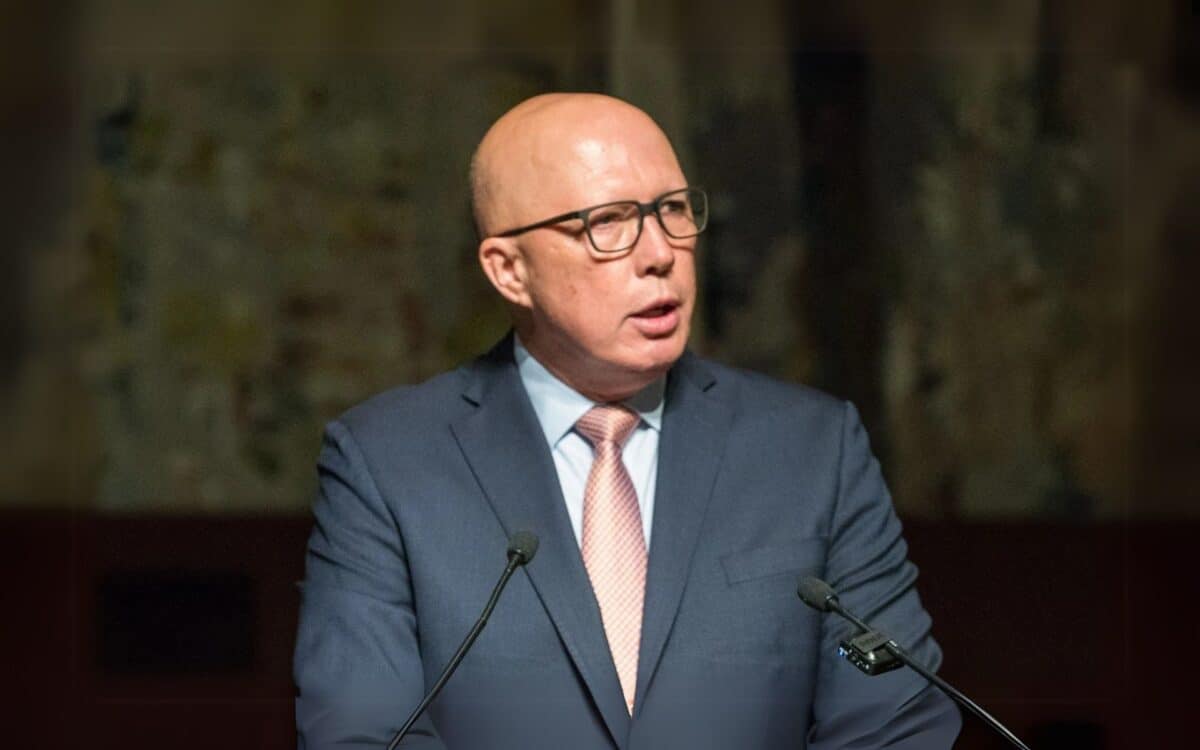The Coalition has unveiled a proposal to cut the number of international students entering Australia by 80,000 annually, citing its impact on the nation’s housing affordability. Opposition leader Peter Dutton believes that reducing student numbers will help young Australians secure homes more easily.
According to SBS News, this move has sparked debate, with critics questioning whether international students are truly responsible for the housing crisis. The proposal, which also includes higher visa application fees, has raised concerns across various sectors, including universities and political groups, about its potential economic and social consequences.
Proposed Reduction and Visa Fee Increases
The Coalition plans to cap the number of international students entering the country at 240,000 annually, a reduction of 30,000 from the Labor government’s plan to cap the number at 270,000 by 2025.
Additionally, the Coalition intends to increase visa application fees. For students enrolling at Group of Eight universities, the fee will rise to $5,000, while other students will face a fee of $2,500.
A new $2,500 fee will also be introduced for students wishing to change educational institutions. These changes aim to reduce the strain on Australia’s housing market by limiting the number of international students.
Coalition’s Argument : A Strategy to Tackle Housing Costs
Peter Dutton has defended the move by linking it directly to addressing the cost of living. He claimed that reducing migration would allow more young Australians to purchase homes, citing the impact of international students on the housing market, particularly in urban centers.
According to Dutton, his policies could lead to savings for students, especially in terms of transportation costs, with lower fuel prices being part of the broader economic plan.
If you’re spending an hour and a half in a car, even a little Mazda2, or if you’ve got a bigger, gas-guzzling car, you’re probably going to save, as a university student under our policy, maybe two tanks a week – he said.
Two tanks a week. That’s probably 30 bucks a week you’re going to save as a university student. That is a huge saving.
Dutton‘s comments also touched on the issue of international students using post-study visas to stay in the country, which the Coalition intends to review.
As a way to gain access to the Australian labour market and as a pathway to permanent migration – he said,
suggesting that changes would be made to this visa category to prevent misuse.
Criticism from the Greens and Universities
The proposed policy has faced significant backlash. The Greens criticized the Coalition’s approach as a “scapegoating” of international students and migrants.
Dutton’s plan to slash student numbers and triple visa fees is a cynical ploy to stoke fear and division in the lead-up to an election – deputy Greens leader Mehreen Faruqi said.
Faruqi also noted that Labor had started the conversation by pushing for caps last year, accusing them of
Starting this round of punching down on international students.
The facts are clear, we’ve seen the evidence: international students are not the cause of skyrocketing rents or unaffordable housing – Faruqi continued.
That responsibility lies squarely with successive governments who have refused to build enough public housing and prioritised lining the pockets of wealthy property investors.
Universities Australia also echoed these concerns, asserting that the real issue lies in the country’s lack of affordable housing, not the number of international students.
Students make up less than six percent of the national rental market. The real solution is more homes, not fewer students – said CEO Luke Sheehy.
We urge all parties to base policy on facts, not finger-pointing. We’re ready to work constructively on real solutions, but cuts like these will only harm the nation’s prosperity at a time we can least afford it.
Impact on Australia’s Education Sector
The Group of Eight universities, which include Australia’s top educational institutions, also criticized the plan.
The wrong policy at the wrong time – said Vicki Thomson, CEO of the Group of Eight.
It beggars belief that the Coalition would single out the [Group of Eight] for extra burden — Australia’s top universities all ranked in the world’s top 100 — that attract the best and brightest minds from our region and around the world.
Thomson warned that such measures would reduce Australia’s global standing in higher education and harm its ability to attract talented students, which could impact the country’s international reputation and long-term innovation.









